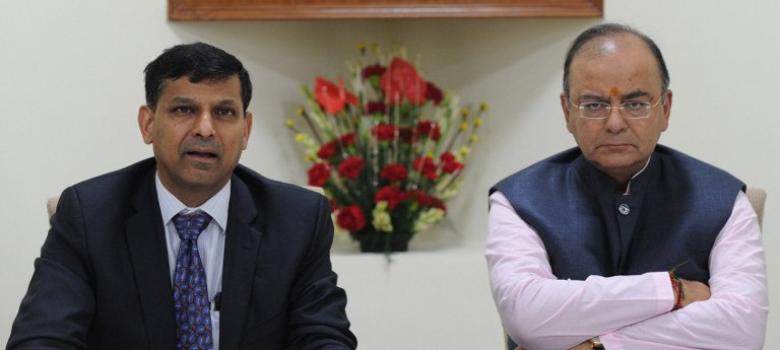The differences boil down to who gets how much power – and who has the final word on the monetary policy and managing government borrowings.
That’s because some proposed reforms could mean that Rajan’s wings may be clipped, especially when it comes to interest rates and government’s debt management. The first bone of contention is the proposed Monetary Policy Committee.
The formation of this committee will mean any decision about the monetary policy in the country – essentially, controlling interest rates and consequently, inflation – will no longer be at the sole discretion of the RBI governor, which is currently the case. The committee will include non-RBI officials and any decision will be taken by way of a voting process among the members.
Although first announced in 2014, under the United Progressive Alliance regime, Finance Minister Arun Jaitley in his budget speech on February 28 (pdf) said that the Modi government will move to amend the RBI Act this year and set up this new body. According to the RBI Act, the prime minister currently appoints the governor and allows the government to direct the central bank on matters of public interest.
On February 20, the government signed the monetary policy framework, which lays out that the RBI will look to keep the consumer price inflation within 6% by January 2016 and within a band of two percentage points subsequently.
But, even though both the government and the RBI support the concept of the committee, there are seemingly differences over key administrative issues.
RBI's independence
Officials with knowledge of the various proposals told Reuters that the two sides disagree over decisions like the size of the committee, its composition and whether the RBI governor would have the final say, in the form of a veto.
“There is no convergence,” said a senior policymaker familiar with the issues.
Another official told the Economic Times newspaper that although Rajan will be an important voice in the committee, he cannot have a deciding vote.
“You have a committee because you believe that no one person should have too much say,” the official said. “While the details are yet to be worked out, the thinking is that each member of the committee should have an equal vote.”
C Rangarajan, former RBI governor and former chairman of the Prime Minister’s Economic Advisory Council, however, explained that this agreement itself gives greater independence to the central bank.
Rangarajan said this is because the agreement “clearly says that the dominant objective of the RBI is price stability. Therefore, it is free to take any action which it thinks is appropriate in order to bring down inflation.”
He believes once the committee is set up, “obviously, the RBI governor would have the casting vote if the opinion is equally divided.”
Radhika Rao, an economist with DBS in Singapore, held that the government’s involvement in the monetary policy might erode the RBI’s independence.
“A government’s active role in monetary policy-making risks undermining the central bank’s independence and might result in conflict of interests in terms of broader economic priorities,” Rao told Reuters.
Debt management
Meanwhile, the other government policy that analysts say will curb the RBI’s freedom is the plan to form a public debt management agency, which will manage the funds that the government borrows from the market and public debt. Currently, the RBI manages these borrowings.
“The move to set up a separate PDMA is a bit drastic for reducing the powers of RBI as it comes with many pre-conditions,” said Ashvin Parekh, managing partner of Ashvin Parekh Advisory Services.
The RBI, Parekh explained, has been doing a fairly good job, including during the recent flight of capital following the US Federal Reserve’s tapering talk.
And the RBI governor himself has previously explained that he doesn’t see a particularly strong case in taking away the debt management function from the central bank.
“On debt management, my sense is that there is no strong theoretical reason either way. Should it be at RBI or should it be at the finance ministry?” Rajan said in a 2013 interview. “Right now the expertise lies with the RBI. We have been doing it.”
This article was originally published on qz.com.












